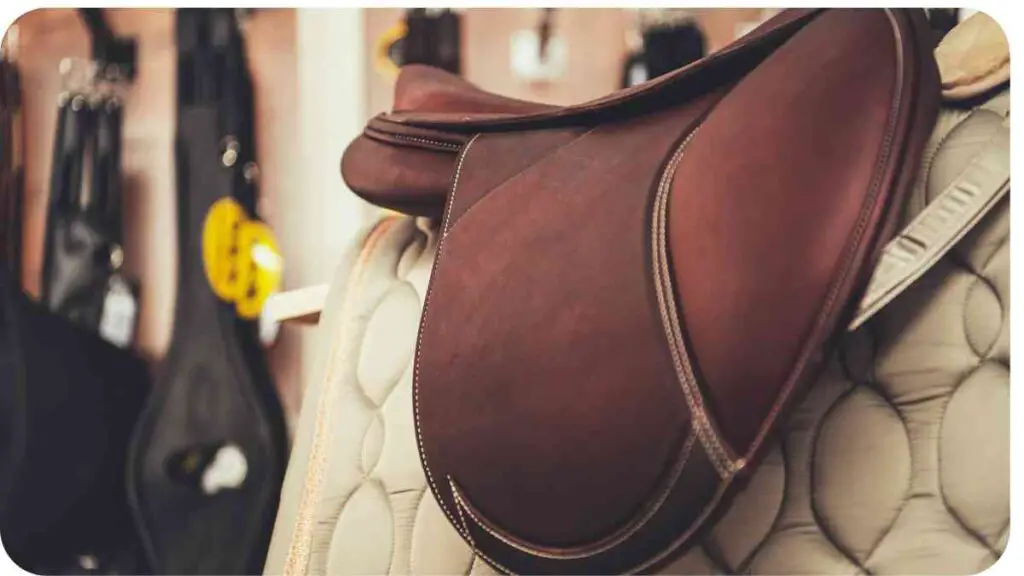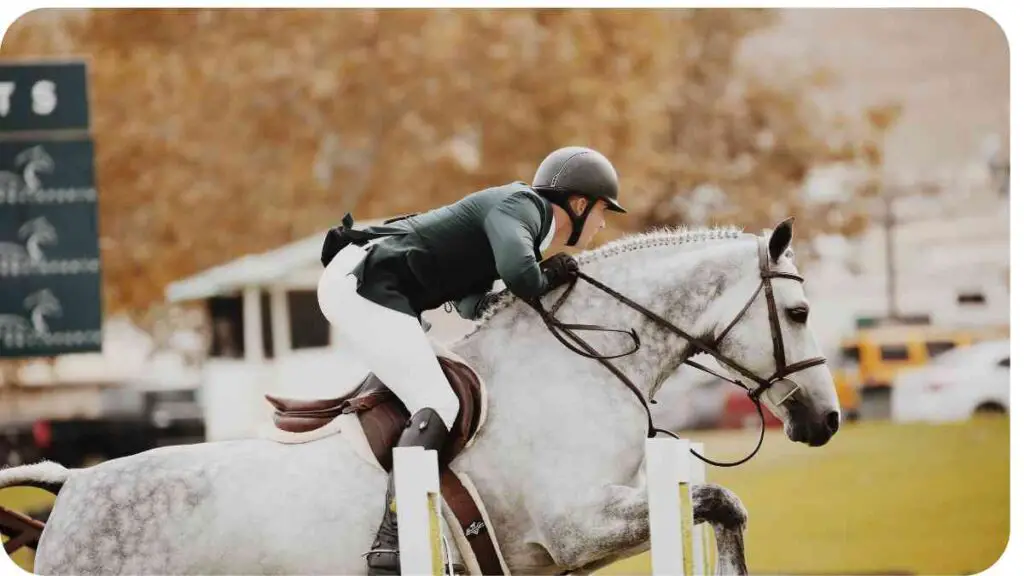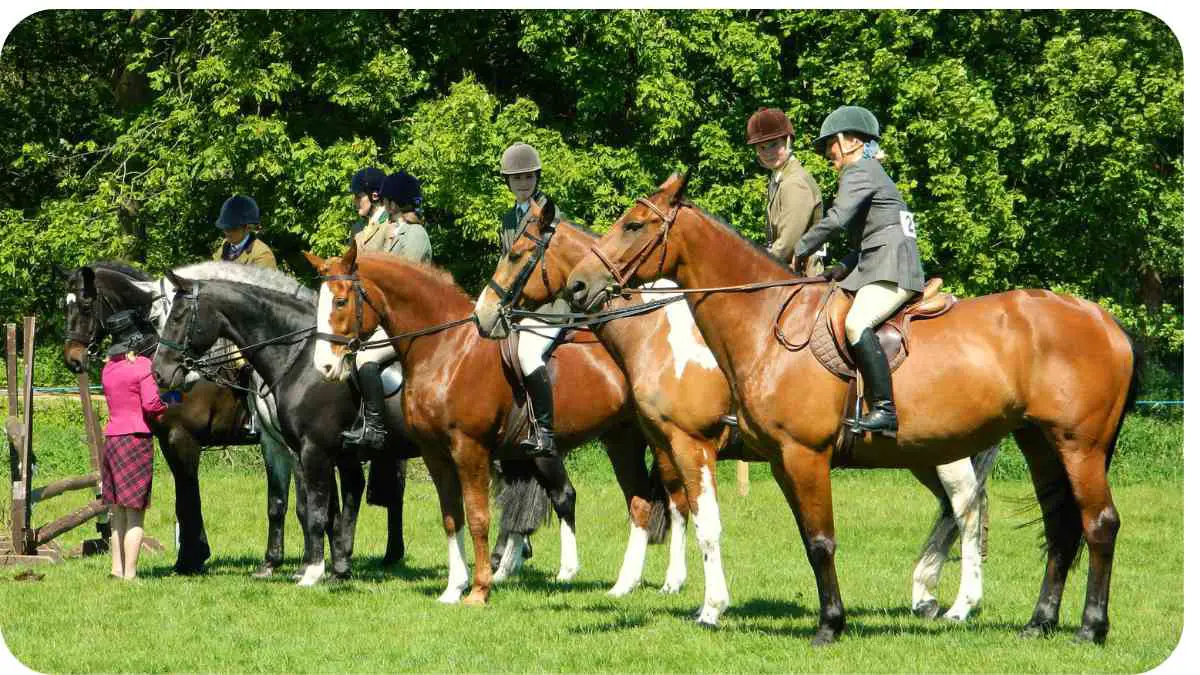Welcome to this comprehensive guide on choosing the right equestrian coach. Whether you’re an experienced rider or just starting in the equine world, finding a coach who meets your needs and aspirations can greatly enhance your equestrian journey.
This article will provide valuable insights, tips, and anecdotes to help you make an informed decision.
| Takeaways |
| Choosing the right equestrian coach is crucial for your progress and success as a rider. |
| Evaluate the coach’s expertise, experience, and qualifications to ensure they have the necessary knowledge and skills. |
| Consider the coach’s teaching style and philosophy to ensure compatibility with your learning preferences and goals. |
| Seek recommendations from peers and industry experts to get valuable insights into a coach’s reputation and teaching abilities. |
| Establish a personal connection and effective communication with your coach for a productive learning experience. |
| Evaluate logistical factors such as availability, location, and facilities when choosing an equestrian coach. |
2. The Importance of a Good Equestrian Coach
A skilled equestrian coach plays a pivotal role in your development as a rider. They provide guidance, share their expertise, and help you refine your skills. A knowledgeable coach not only imparts technical knowledge but also instills confidence, motivation, and discipline.
When selecting the perfect saddle for your horse, it’s crucial to consider their comfort and your riding style. Learn more about saddle choice in our comprehensive guide on choosing the perfect saddle.
3. Assessing the Coach’s Expertise

When choosing an equestrian coach, it’s crucial to assess their expertise in the subject matter. Look for a coach who demonstrates an in-depth understanding and proficiency in the specific discipline you wish to pursue. Consider their personal achievements, certifications, and ongoing commitment to professional development.
4. Evaluating the Coach’s Experience
Practical knowledge is equally vital in a coach. An experienced equestrian who has faced various challenges and overcome them is better equipped to guide you effectively. Evaluate the coach’s experience by considering their background, competition history, and track record. A coach with relevant experience in your chosen discipline can provide valuable insights based on real-life scenarios.
Explore the world of equestrian communities and find your riding tribe. Our article on finding your tribe offers insights into the equestrian social network.
5. Ensuring the Coach’s Authoritativeness
Authoritativeness is a key factor in assessing a coach. Look for content they have created that demonstrates their specialized knowledge. Ensure they reference reputable sources in their teaching. Additionally, seek confirmation of their credibility from industry peers and organizations. A coach acknowledged by others within the equestrian community is more likely to be reliable and trustworthy.
| Reputable Sources and Industry Recognition |
| – Published articles in reputable equestrian magazines |
| – Participation in prominent equestrian conferences and events |
| – Recognition and certifications from accredited organizations |
| – Positive feedback or testimonials from industry professionals |
6. Trustworthiness: A Crucial Factor
Trust is fundamental when selecting an equestrian coach. Trustworthiness encompasses factual accuracy, transparency, and ethical behavior. A trustworthy coach provides reliable information, operates with integrity, and puts the well-being of riders and horses at the forefront. Look for coaches who prioritize safety, sportsmanship, and fair play.
Choosing the right horse breed for your needs is a fundamental decision for any equestrian enthusiast. Read our guide on selecting the right horse breed to make an informed choice.
7. Determining the Coach’s Teaching Style
How a coach imparts knowledge and communicates can significantly impact your learning experience. Understanding their teaching style is essential to ensure compatibility. Some coaches are more hands-on, while others prefer a more hands-off approach. Consider your preferred learning style and find a coach whose teaching methods align with it.
| Teaching Styles and Their Impact |
| – Demonstrative: Visual learners benefit from seeing the coach in action |
| – Verbal: Auditory learners prefer detailed explanations and instructions |
| – Kinesthetic: Tactile learners excel with a more interactive, hands-on approach |
| – Individualized: Tailored lessons addressing specific rider needs |
| – Group-oriented: Learning from observing peers and engaging in group exercises |
8. Finding a Coach that Aligns with Your Goals

Each rider has unique goals and aspirations. It’s crucial to find a coach who aligns with your objectives. Consider their areas of specialization, training philosophies, and the success of their previous students. A coach who has helped others achieve similar goals is more likely to guide you effectively towards your own accomplishments.
Struggling with ill-fitting riding boots? Discover how to address this issue with helpful tips provided in our article on fixing your riding boots.
| Identifying Coaching Specializations |
| – Dressage |
| – Show Jumping |
| – Eventing |
| – Western riding |
| – Trail riding |
| – Driving |
| – Natural horsemanship |
9. Understanding Communication and Availability
Effective communication is vital in the coach-rider relationship. Consider the coach’s communication methods and availability when making your decision. Some coaches prefer face-to-face communication, while others use technology-enabled solutions like video calls and online forums. Ensure their communication style aligns with your preferences and availability.
| Coach’s Communication Methods |
| – In-person meetings |
| – Phone calls |
| – Video calls |
| – Email correspondence |
| – Online chat forums |
10. Assessing Facilities and Resources
The quality of facilities and resources available at a coach’s training center can greatly impact your learning experience. Evaluate the condition of the riding arenas, stables, and equipment. Check for safety measures and the availability of additional resources such as qualified support staff, training materials, and access to specialized training equipment.
Equestrian literature is a valuable resource for horse enthusiasts. Dive into the world of equestrian books with our recommendations in the article on best books to read.
| Facilities and Resources Checklist |
| – Well-maintained riding arenas |
| – Safe and comfortable stables |
| – Quality horse care facilities |
| – Adequate tack and equipment |
| – Support staff for assistance |
| – Access to specialized training equipment |
11. Considering Reputation and Reviews
Reputation and reviews can offer valuable insights into a coach’s capabilities. Look for feedback from current and former students as well as the equestrian community at large. Assess the coach’s reputation based on their consistency, professionalism, and the success of their students. A positive and respected reputation is a key indicator of a reliable coach.
| Review Summary |
| – Positive student testimonials |
| – High ratings and recommendations |
| – Recognition within the equestrian community |
| – Consistent positive feedback |
12. Talking to Current and Former Students
One of the best ways to gauge a coach’s effectiveness is by speaking with their current and former students. Reach out to riders who have trained with the coach you are considering and ask about their experiences.
Inquire about their progress, the coach’s teaching methods, and the overall learning environment. This firsthand feedback can provide invaluable insights into what it’s like to work with a particular coach.
13. Arranging a Trial Session
To truly assess the compatibility between you and the coach, consider arranging a trial session. This will give you the opportunity to experience the coach’s teaching style firsthand and see if it aligns with your learning needs. During the trial session, observe their approach, communication, and how they interact with horses and riders. Pay attention to the coach’s ability to provide constructive feedback and their receptiveness to questions and concerns.
14. Pricing and Affordability
While cost should not be the sole determining factor, it’s essential to consider the pricing and affordability of coaching services. Research the average rates in your area and evaluate how the coach’s pricing structure aligns with their expertise and experience. Remember, investing in quality coaching can have long-term benefits for your equestrian journey.
15. Making the Final Decision
After thoroughly assessing all the factors mentioned above, it’s time to make a well-informed decision. Consider all the information gathered, including expertise, experience, authoritativeness, trustworthiness, teaching style, alignment with your goals, communication, facilities, reputation, and affordability. Choose a coach who checks all the boxes and, most importantly, with whom you feel a strong connection and trust.
16. Conclusion
Choosing the right equestrian coach is crucial for your growth as a rider. This comprehensive guide has highlighted the key factors to consider when making this decision. Remember to assess the coach’s expertise, experience, authoritativeness, trustworthiness, teaching style, goals alignment, communication, facilities, reputation, and affordability.
By putting in the necessary research and considering personal preferences, you will be well on your way to finding a coach who can guide you towards success and help you achieve your equestrian aspirations. Trust your instincts, follow your passion, and enjoy the journey of learning and growing with a knowledgeable and supportive equestrian coach by your side.
Further Reading
Here are some additional resources that delve deeper into the topic of choosing the right equestrian coach:
- Equinavia – How to Choose the Right Horse Trainer: This comprehensive guide provides detailed steps and insights on selecting the ideal horse trainer for your equine needs. It covers various factors to consider and offers valuable tips and advice.
- Savvy Horsewoman – Choosing the Right Riding Instructor: This informative article discusses the key aspects of selecting a riding instructor who aligns with your goals and riding style. It explores the importance of compatibility and communication in the instructor-rider relationship.
- Confident Horsemanship – Finding the Right Horse Riding Coach: Discover the essential factors to consider when looking for the perfect horse riding coach. This resource addresses common concerns and provides practical tips for finding a coach who can inspire and guide you on your equestrian journey.
FAQs
How do I know if an equestrian coach is right for me?
Finding the right equestrian coach is about personal compatibility and shared goals. It’s essential to have a good rapport with your coach and ensure their teaching style aligns with your learning preferences.
What qualifications should I look for in an equestrian coach?
Qualifications such as certifications, degrees, or experience in the discipline are valuable indicators of a coach’s knowledge and expertise. Look for coaches who continue to expand their own education and stay updated on current training methods.
Are testimonials important when choosing an equestrian coach?
Testimonials from riders who have trained with a specific coach can provide valuable insights into their teaching abilities and the results they have achieved. However, it’s important to consider multiple testimonials and evaluate them in conjunction with other factors.
How often should I have lessons with my equestrian coach?
The frequency of lessons will depend on your goals, availability, and budget. Typically, weekly or bi-weekly lessons are recommended to maintain progress and ensure consistent learning.
Can I switch equestrian coaches if I’m not satisfied?
If you find that your current equestrian coach is not meeting your expectations or needs, it is absolutely acceptable to explore other coaching options. Your progress and development as a rider should be your top priority.
Create a single column Takeaway table based on this blog title

Hi there! My name is Hellen James, and I’m a horse riding expert. I’ve been riding horses since I was just a kid—and it’s been my passion ever since. But getting started with horse riding can be overwhelming. There’s so much to learn! If you’re looking for a way to get started and make sure you’re doing it right, I’m here to help.


